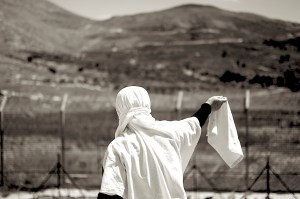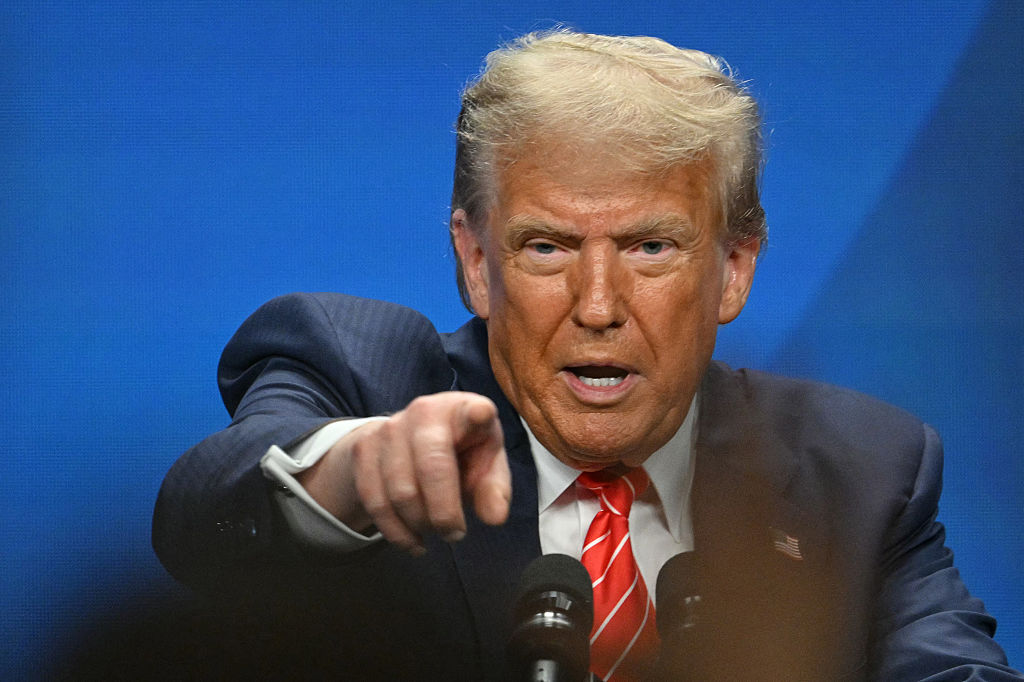Watching Israel tear itself apart this week has been like seeing your best friend embarrass himself at a party. The world has looked on while the Netanyahu government, in hock to a small cabal of religious chauvinists, pushed through the first stage of its judicial reform agenda, sparking the biggest street protests the country has ever seen. Whatever happened to the start-up nation?
Last night and this morning was the Jewish fast of Tisha B’Av, which commemorates the destruction of the Temple in 70 AD and the subsequent exile from Israel. To mark it, firebrand minister Itamar Ben-Gvir visited the Western Wall to the sound of messianic songs before provocatively ascending Temple Mount, the place where tensions are highest. He has described the passing of the legislation this week as the “salad course” before the main meal, which if served in its entirety, would profoundly change the face of the country.
Around the world, Jews have looked on in horror. Netanyahu, who is facing corruption charges, has been reduced to relying on fringe extremists to prop up his coalition government (supporters of proportional representation take heed).
First on the agenda has been taming the power of the Supreme Court, which acts as the sole check on the parliament, the Knesset, since the Israeli system is unicameral and has no equivalent of the Senate. Netanyahu’s allies have been planning to pass a new law to protect a prime minister from criminal charges for as long as he remains in office. It doesn’t look good.
Yet the right-wing has a point. The government has no ability to control the appointment of Supreme Court judges, and they tend to be drawn from a pool of liberal, Ashkenazi elites. This regularly sets the court on a collision course with the government; right-wingers have long believed, not without evidence, that its activities are politically motivated.
Over the years, judges have repeatedly blocked legislation to retroactively legalize West Bank settlements, curtail military obligations upon the strictly Orthodox, and place African asylum seekers in detention centers pending deportation. It is the equivalent of Britain’s courts preventing the UK government from enacting its Rwanda plans or pushing through Brexit, only in Britain, judges are not entitled to overrule parliament.
Some of the Israeli court’s interventions have used a “reasonableness” principle, meaning that it was empowered to strike out moves that it perceived as “unreasonable.” It was this mechanism that was overturned by the government this week.
It is difficult to imagine that the leaders of any country would be overjoyed at seeing their policy agenda thwarted on such a subjective basis by unelected judges that slant to the left. Yet the fact that extremists are powering the drive for reform, together with the cloud of — as yet unproven — charges hanging over the head of the prime minister, gives the whole operation a nasty smell.
For those on my side of the argument, the game used to be simple. Defend the Jewish state against the rampant Israelophobia that infects so many elements of society, from social media to the mainstream media. Now, however, the country’s dirty laundry is out in the open, and we are called upon to voice our criticism louder than ever before. This feels more than a little uncomfortable.
The discomfort comes not because we are blind to Israel’s faults, but because those shouting loudest about the country’s descent into chaos are often doing so in bad faith. To commentators in the grip of Israelophobia, this is the fulfillment of their bigoted assumptions: Israel’s stable, liberal democracy and support of women and minorities never sat happily against their bigotry. Now they can accuse it of sliding into autocracy, they are at peace. After all, these are Jews we’re talking about.
So while those of us who love the country and the Western, liberal values it represents wring our hands, others rub theirs together. The last thing we want to do is stand beside them. As Howard Jacobson wrote in a recent essay, the fact that the ambitions of Zionism, to “avert imminent catastrophe, to rejuvenate a too long confused and slumbering faith, to chart a course between aggressive assimilation and timorous isolationism, to live in peace with neighbors, have not yet, in all instances, achieved their goals,” leads to a deep disappointment.
But, he adds, “don’t let the disappointments of now distort the ambitions of then. Just because iniquity appears sometimes to be its fruit does not mean that Zionism was iniquitous in its planting.” When dreams fail to match reality, we weep; but there are those who do not weep, but rather gloat and agitate and attack. They are among those who wanted to see the dream blighted in the first place.
For this reason, it is important to cut through the hysteria. Without at all downplaying the grave situation in the Holy Land, this is not the end of Israeli democracy. Even if the entire agenda of the current government is implemented — which I for one pray does not occur — the country would still be the most open and democratic in the Middle East. The catastrophizing comes from the Israeli left, which was marching against Netanyahu long before the current crisis, amplified by those Israelophobes around the world who have latched onto the chaos with the particular glee of wish-fulfillment.
Setting aside the unpleasant characters influencing the government, Israel’s political system does need reform. In the absence of both a written constitution and a second parliamentary chamber, unelected judges have gradually assumed more and more power, beginning with its activist president Aharon Barak in the nineties. Memories of the Brexit wars of 2016, when judges blocked Theresa May’s attempts to trigger Article 50, show the populist fury that is evoked when judges frustrate the “will of the people.” The can has been kicked down the road since 1948.
There is, however, a profound lesson in all this. Over the last two thousand years, Jews have been both hated as the Christ-killers and elevated as the Chosen People. Christianity made the Jewish homeland the Holy Land, the Jewish city the Holy City, and a Jewish prophet the Son of God. This has been the foundation of Western civilization and culture, with Jews both held to higher standards and derided, seen as a toxic blend of Übermenschen and Untermenschen, often with blood-soaked results. It is not difficult to see how Israelophobia, the latest form of antisemitism, fits into all this.
In truth, however, the Jews have always been a people like any other, and their country is a normal country: exceptional in many ways, flawed in many others, but a product of frail humanity, like the rest of the world. The current political crisis gripping the Jewish state is deeply disturbing, but it does not mean the end of democracy, and it does not mean that Israel is evil, any more than Britain’s turbulent political history did. It means that it is simply a real place. Not an idealized vision.
As the Zionist icon Ze’ev Jabotinsky wrote in 1911: “We are a people as all other peoples; we do not have any intention to be better than the rest. As one of the first conditions of equality we demand the right to have our own villains, exactly as other people have them.” Given the villains in Israel today, these words ring truer today than ever. But — take heart! — they are vastly outnumbered by the decent majority. Take the bigotry out of the picture and the hysteria fades as well.
This article was originally published on The Spectator’s UK website. Subscribe to the World edition here.

























